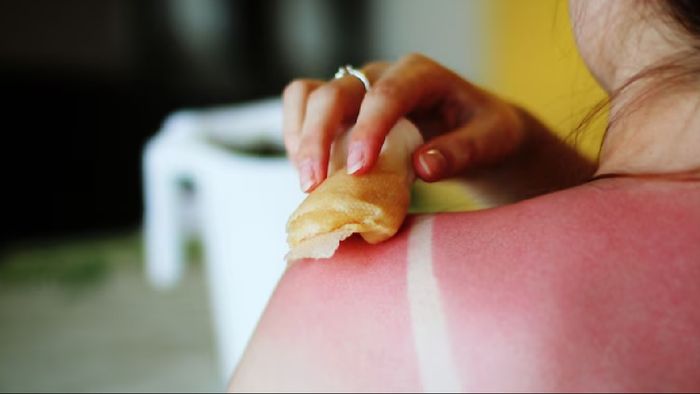Shielding your skin: A comprehensive guide to preventing sunburn this summer
Sunburn occurs when the skin is overexposed to ultraviolet (UV) radiation from the sun, leading to inflammation, redness, pain, and in severe cases, blistering and peeling.

- Apr 30, 2024,
- Updated Apr 30, 2024, 9:33 PM IST
As the temperatures rise and the sun becomes more intense, it's crucial to prioritize skin protection to avoid the discomfort and potential long-term damage caused by sunburn. Sunburn occurs when the skin is overexposed to ultraviolet (UV) radiation from the sun, leading to inflammation, redness, pain, and in severe cases, blistering and peeling. However, with the right precautions and habits, you can safeguard your skin effectively during the summer months.
Understanding Sunburn:
Before delving into prevention strategies, it's essential to understand the factors that contribute to sunburn. The sun emits different types of UV radiation, including UVA and UVB rays, both of which can damage the skin. UVB rays primarily cause sunburn by penetrating the outer layers of the skin, while UVA rays penetrate deeper, leading to premature aging and increasing the risk of skin cancer.
Prevention Strategies:
Wear Sunscreen: Choose a broad-spectrum sunscreen with an SPF (Sun Protection Factor) of 30 or higher. Apply it generously to all exposed skin areas at least 15 minutes before sun exposure, and reapply every two hours, or more frequently if swimming or sweating.
Seek Shade: Limit your time in direct sunlight, especially during peak hours between 10 a.m. and 4 p.m. When outdoors, seek shade under trees, umbrellas, or canopies to reduce your exposure to UV radiation.
Wear Protective Clothing: Opt for lightweight, long-sleeved shirts, pants, and wide-brimmed hats to shield your skin from the sun's harmful rays. Consider clothing with built-in UPF (Ultraviolet Protection Factor) for added protection.
Use Sunglasses: Protect your eyes and the delicate skin around them by wearing sunglasses that block 100% of UVA and UVB rays. Look for sunglasses labeled as UV 400 or provide 100% UV protection.
Stay Hydrated: Drink plenty of water throughout the day to keep your skin hydrated and resilient. Hydrated skin is better equipped to withstand sun exposure and recover from damage.
Avoid Tanning Beds: Refrain from using tanning beds, as they emit UV radiation similar to the sun, increasing the risk of sunburn, premature aging, and skin cancer.
Be Mindful of Medications: Some medications, such as certain antibiotics, acne treatments, and anti-inflammatories, can increase sensitivity to sunlight. Consult your healthcare provider or pharmacist to understand how your medications may affect your skin's reaction to the sun.
Practice Sun Safety Year-Round: Sunburn can occur even on cloudy or overcast days, as UV rays can penetrate through clouds and cause damage to unprotected skin. Therefore, it's essential to practice sun safety habits year-round, regardless of the weather.
Treatment for Sunburn:
Despite your best efforts, sunburn may still occur. If you experience sunburn, take immediate steps to alleviate discomfort and promote healing:
Take a cool bath or apply cold compresses to the affected area to soothe inflammation and reduce pain.
Moisturize your skin with aloe vera gel or a fragrance-free moisturizer to hydrate and promote healing.
Drink extra fluids to prevent dehydration, as sunburn can increase fluid loss through the skin.
Avoid further sun exposure until your skin has healed, and cover the affected area with clothing or a bandage if necessary.
Protecting your skin from sunburn requires a combination of proactive measures, including sunscreen use, seeking shade, wearing protective clothing, and staying hydrated. By incorporating these habits into your daily routine and being mindful of sun safety year-round, you can enjoy the summer months while minimizing the risk of sunburn and long-term skin damage. Remember, prevention is key when it comes to safeguarding your skin's health and vitality.